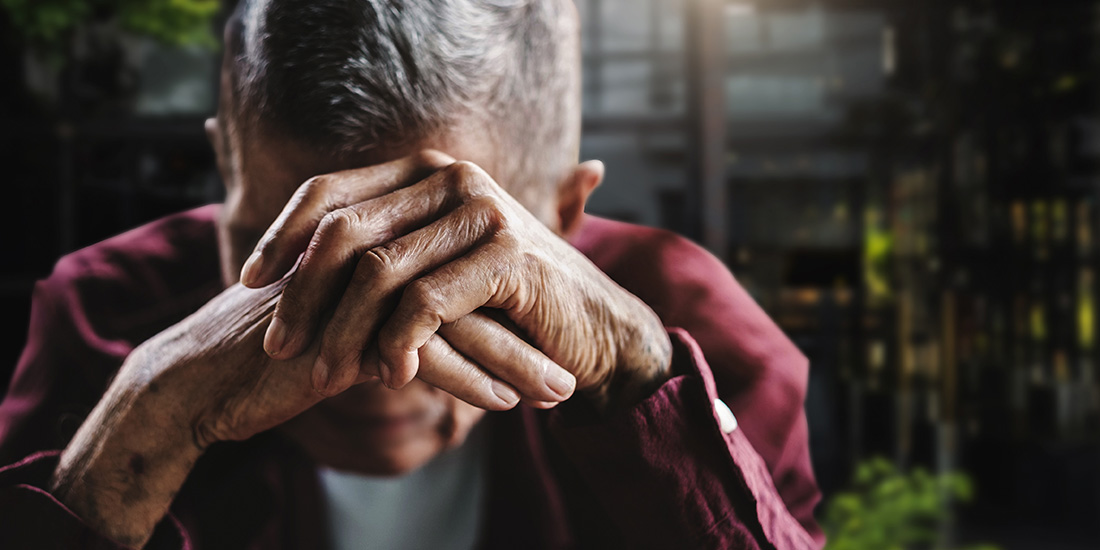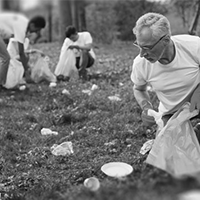 Contact
About Us
Articles
Home
Contact
About Us
Articles
Home

There are around 500,000 reports of elder abuse every year in the United States, and it’s an issue that currently impacts 1 out of 10 people over the age of 60. It’s a serious problem that can have dangerous mental and psychological impacts. While elder abuse can be difficult to spot, knowing the warning signs and knowing how to prevent it can help to ensure that you and your loved ones are protected.
As adults age and become more dependent on caregivers for basic needs, they are at an increased risk of falling victim to elder abuse. This risk is only heightened for individuals with dementia, who are particularly frail or who have an illness that puts increased strain on the individual and caregiver. Caregiving can be stressful and overwhelming, especially for individuals that are not equipped or prepared for these responsibilities. As a result, elder abuse is a growing problem both for older adults living at home and for those living in long-term care facilities.
The federal Centers for Disease Control and Prevention defines elder abuse as “an intentional act, or failure to act, by a caregiver or another person in a relationship involving an expectation of trust that causes or creates a risk of harm to an older adult.” The CDC also identifies specific types of elder abuse including physical, sexual, emotional, neglect, abandonment and financial abuse.
Elder abuse can have serious mental and physical consequences ranging from minor injuries, like bruises and cuts, to serious, long-term injuries like head injuries, broken and fractured bones, and chronic pain.
Additionally, abuse can worsen ongoing health issues and lead to premature death. Further, elder abuse of all kinds can have substantial psychological impacts, causing victims to be fearful and anxious and unwilling to trust anyone.
| Type of Abuse | Warning Signs |
|---|---|
| Type of AbusePhysical | Warning SignsUnexplained injuries, bruises or broken bones; medication overdoses or skipped medication; broken glasses; caregiver will not let people visit with elder without being present |
| Type of AbuseEmotional | Warning SignsThreatening or belittling behavior from the caregiver; elder exhibits syptoms that look like dementia, including rocking or mumbling |
| Type of AbuseSexual | Warning SignsBruises around breasts or genitals; unexplained anal or vaginal bleeding; torn or stained undergarments |
| Type of AbuseNeglect | Warning SignsUnexplained weight loss or dehydration; untreated physical problems; unsanitary or unsafe living conditions; poor hygiene |
| Type of AbuseFinancial | Warning SignsSudden account withdrawals; changes in financial situation; missing personal items; changes in legal documents; suspicios account activity |
Unfortunately, elder abuse is a major and ever-growing problem for adults over 60. In the United States, there are around 500,000 reports of elder abuse every year. What’s even more concerning is results from a study done by the Center of Excellence in Elder Abuse and Neglect which found that for every reported case of elder abuse, there are likely five more cases that are not reported.
The CDC echoes this concern, noting that this is commonly an underreported issue because victims are unable, scared, or ashamed to report the abuse. Nevertheless, the CDC’s study shows that 1 in 10 adults over the age of 60 will experience elder abuse, with males having a higher risk of abuse than females.
Elder abuse can be difficult to identify in part because many of the warning signs can be mistaken for signs of dementia, frailty or normal aging. Nevertheless, there are some signs that friends and family should be aware of and looking for to help protect older loved ones.
Some common warning signs of elder abuse include trouble sleeping; being depressed or confused; unexplained weight loss; exhibiting signs of trauma; becoming easily agitated; suddenly becoming withdrawn; unexplained injuries; and poor hygiene. Additionally, regular arguments or tension between an older adult and their caregiver can be a warning sign. Here are some warning signs for common types of abuse that older adults and their loved ones should know:
While elder abuse is a serious problem, there are things that individuals can do to avoid falling victim to this type of abuse. Additionally, there are things that friends and family members can do to ensure that their loved ones are not victims of elder abuse.
To protect themselves, older adults should ensure that their legal documents and finances are in order. This includes all relevant documents such as wills, powers of attorney, insurance policies and titles. If your finances and legal documents are not in order, reach out to a professional for help with this.
Another way to protect yourself from elder abuse is by staying connected with family members and friends. Becoming isolated with a caregiver puts individuals more at risk for abuse and less able to seek help when abuse occurs. A simple way to protect yourself is by having close personal relationships with a number of different people.
Individuals also can protect themselves from abuse if they immediately tell someone or contact an elder abuse hotline if they are concerned about a caregiver’s behavior. This can be hard to do, but it’s best to play it safe and to reach out for help if you have any suspicions or concerns.
In addition to the steps that individuals can take, there are also a number of ways that friends and family members can help to protect older loved ones, including:
Elder abuse is a serious and growing problem for adults over 60. Older adults should be proactive about protecting themselves from this type of abuse. Additionally, friends and family members of vulnerable elders should know and look for the warning signs. And, perhaps most importantly, if you are experiencing elder abuse or concerned that a loved one is being abused, you should immediately report it and seek help.
Alliance America is an insurance and financial services company. Our financial professionals can assist you in maximizing your retirement resources and achieving your future goals. We have access to an array of products and services, all focused on helping you enjoy the retirement lifestyle you want and deserve. You can request a no-cost, no-obligation consultation by calling (833) 219-6884 today.


